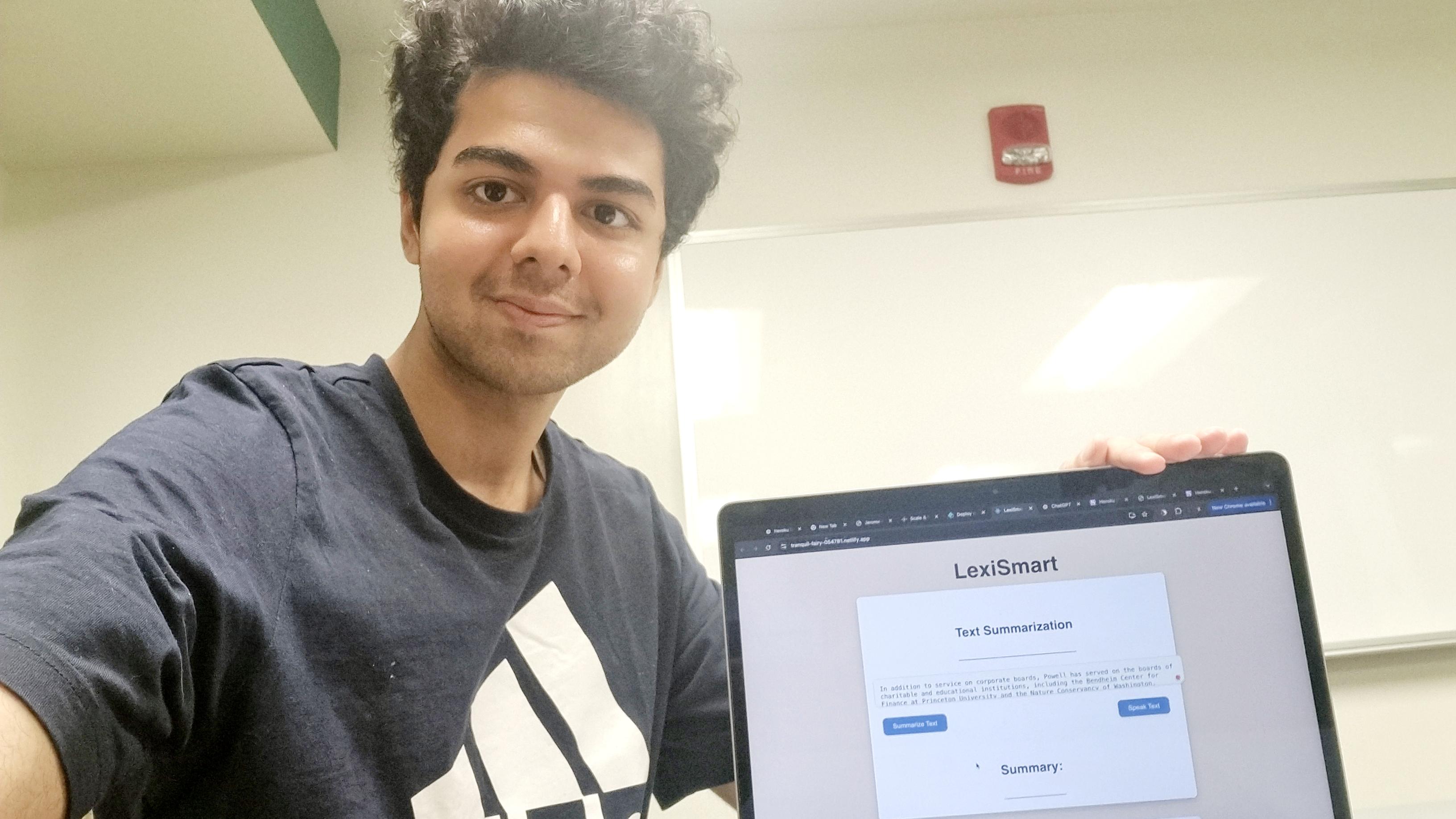
Samay Bhojwani, a freshman Computer Science major at the University of Nebraska-Lincoln, is already pushing his studies to the limit — creating a software tool that focuses on helping students who may struggle with dyslexia as a learning disability, a subject that hits close to home.
Born and raised in India, Bhojwani found himself in the United States after realizing he wanted to keep expanding his horizons and seeking professional achievement.
“I grew up in India, surrounded by a rich culture, that’s always been a part of who I am,” Bhojwani said. “But as much as I love my roots, I always felt this pull to explore the world and push beyond my comfort zone.”
With the field of computer science being Bhojwani’s sought out profession, he applied to UNL due to its great program — as well as having a “welcoming environment for international students,” per Bhojwani.
“Receiving scholarships really helped make this dream possible,” he said. “Being here has already opened so many doors for me.”
Moving brought with it a bit of culture shock, with Bhowani’s biggest surprise being how "self-sufficient people are.”
“There’s such a strong sense of independence in how everyone balances their lives, from managing chores to juggling work and studies…it’s inspiring,” Bhojwani said.
And of course …
“The cold Nebraska winters were a big shock too!”
Now at UNL, Bhojwani is embarking on a project that means a great deal to him, not just professionally, but personally — a software tool that he hopes helps people besides just him.
“It’s more than just a project,” Bhojwani said. “It's a way for me to give back and support those who might be going through the same struggles I did.”
According to Johns Hopkins Medicine, dyslexia is medically defined as “A learning disorder that affects the way a person processes written and spoken language.” Dyslexia is a lifelong condition that is caused by differences in the brain’s “anatomy, genetics, and activity between language-processing centers” the research hospital stated.
Bhojwani’s inspiration for the project comes from his own personal struggles.
“Growing up with dyslexia was tough,” he said. “I always felt different, and the way others treated me—especially the bullying from both teachers and classmates—made it even harder. I remember feeling isolated and like I didn’t fit in.”
Those experiences drove Bhojwani to make a change — not just for himself, but for others.
“I don’t want others to feel that same sense of loneliness or frustration,” he said. “This project is my way of helping others with dyslexia feel empowered and supported rather than overlooked or misunderstood.”
The Computer Science major spoke to the specifics of the app, saying; “The app is designed to make reading and understanding easier for people with dyslexia. One of its key features is AI-based text summarization, which takes complex text and simplifies it, making it more manageable. "
He continued: “The app also includes a text-to-speech option that reads the content aloud, giving users another way to absorb the material."
There’s even more ways to further support learning with in-depth tools.
“There are interactive quizzes that help reinforce understanding, as well as personalization tools that adapt the experience to each user’s specific needs,” he said.
The app caters to the specific and unique needs of people with dyslexia.
“It offers speech output in different styles and speeds, and displays text in fonts that are easier to read, with proper spacing. By combining these features—text summarization, customizable speech, and a dyslexic-friendly visual design—it provides a truly tailored experience. This tool makes learning more accessible, helping individuals with dyslexia engage with information in a way that works best for them,” the freshman explained.
Bhojwani has big goals for this app, and hopes to continue to define the software even more.
“I have big hopes for this project,” he said. “I plan to keep enhancing it, adding more personalized learning paths that adapt to each user’s strengths and challenges. My ultimate goal is to open-source the software, so other developers, educators, and advocates can contribute to improving it further."
In the long run, Bhojwani wants the project to bring about hope.
“I want this tool to be a beacon of hope for people with dyslexia, providing them with the tools they need to succeed in their education and beyond.”
Bhojwani's app is linked here: https://hidden-shore-66366-02b13dca7829.herokuapp.com